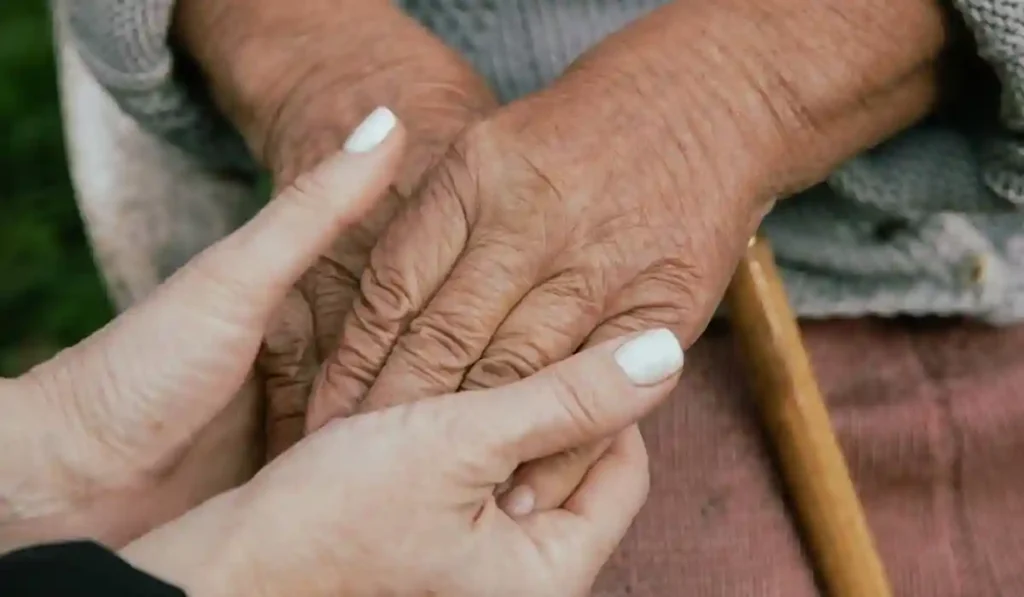Many people assume that the hardest part of being a caregiver is the day-to-day tasks, but you’ll find it’s the emotional and psychological weight that truly challenges you. As a caregiver, you’re not just managing medications or assisting with mobility; you’re also navigating a complex web of emotional dynamics, both yours and your care recipient’s.
The strain can take a toll on your mental health, stretching your resilience to its limits. Moreover, the physical demands and the unexpected financial burdens add layers of stress that you might not have anticipated.
Yet, understanding these challenges is just the beginning. What lies beneath the surface is a nuanced reality that speaks volumes about human strength and vulnerability, one that we’re about to explore further.
Key Takeaways
- Extensive responsibilities and emotional support provided by caregivers
- The emotional toll of caregiving, including guilt management and compassion fatigue
- The physical strain of caregiving and the importance of prioritizing one’s own physical well-being
- The social impact of caregiving, including community isolation and loss of social life
Understanding the Caregiver’s Role

Grasping the caregiver’s role involves recognizing the extensive responsibilities and emotional support they provide, often going beyond basic care tasks. As someone eager to serve, you’ll find that role clarification and expectation management are key to navigating this challenging but rewarding path.
Understanding what’s expected of you and what you can realistically provide sets the foundation for a strong caregiver-care recipient relationship. Role clarification isn’t just about knowing the physical tasks you’ll undertake; it’s also about understanding the emotional and psychological support you’re expected to give. This clarity helps prevent burnout and ensures the care you provide is both meaningful and sustainable.
Meanwhile, expectation management allows you to set realistic goals and boundaries with the person you’re caring for and other family members involved. It’s about finding a balance between what’s needed and what’s possible, ensuring you don’t overpromise and underdeliver.
Combining these elements, you’re not just performing tasks; you’re enhancing someone’s quality of life while safeguarding your own well-being. This approach fosters a positive environment where both you and the person you’re caring for feel valued and understood.
The Emotional Toll of Caregiving
While understanding your role and managing expectations are crucial, it’s equally important to acknowledge the emotional challenges that come with caregiving. The emotional toll of caregiving can weigh heavily on your heart and mind, often manifesting in ways that are both subtle and profound. It’s a journey that requires patience, resilience, and an immense capacity for love, but it also demands a keen awareness of your own emotional health.
The emotional challenges you’re likely to face include:
- Guilt management: You may often find yourself grappling with feelings of guilt, whether it’s about not doing enough or taking time for yourself. It’s vital to remember that you’re doing the best you can in a demanding situation.
- Compassion fatigue: Constantly caring for someone else’s needs can lead to a depletion of your own emotional reserves, a state often referred to as compassion fatigue. Recognizing the signs early and taking steps to replenish your spirit is crucial.
- Feeling overwhelmed: The relentless demands of caregiving can sometimes feel insurmountable, leading to feelings of overwhelm.
Navigating these emotional challenges requires a gentle but firm commitment to self-care, alongside your dedication to serving others. It’s about finding balance, allowing yourself grace, and seeking support when needed.
The Physical Strain of Caregiving
Caregiving’s physical demands can take a significant toll on your body, often in ways you mightn’t anticipate. The relentless lifting, bending, and rushing around not only wear down your muscles but can also introduce a range of health risks. You’re constantly on the go, managing medications, appointments, and the daily needs of those you care for. This constant physical activity, while admirable in its intent, can lead to injuries or chronic conditions if you’re not careful.
Moreover, the sheer amount of time caregiving demands can disrupt your own health routines. Time management becomes a critical skill, yet finding moments for your own exercise and rest often falls to the bottom of your to-do list. It’s a paradox where caring for others can sometimes mean you’re less able to take care of yourself.
Don’t underestimate the importance of prioritizing your own physical well-being amidst your caregiving duties. Incorporating short, daily exercises and mindfulness practices can help mitigate some of these physical strains. Remember, maintaining your health isn’t just about you; it’s also about ensuring you’re in the best condition to provide the care your loved ones depend on.
The Social Impact of Caregiving
Beyond the physical toll, your social life often takes a hit when you’re immersed in caregiving responsibilities. You might find yourself canceling plans, missing out on gatherings, and gradually losing touch with friends. This isolation isn’t just about missing a few outings; it digs deeper, affecting your sense of belonging and connection to the community.
- Community isolation becomes a stark reality as you prioritize caregiving over social engagements, leading to a feeling of being out of sync with the world around you.
- Role stigma often shadows your efforts, with misconceptions and judgments about caregiving creating barriers to open conversations and support from others.
- The emotional toll of feeling disconnected can lead to burnout, making it imperative to seek understanding and support within or outside your immediate circle.
The Caregiver Burnout Crisis
Caregiving is a marathon, not a sprint. It’s a long-term commitment that can stretch your emotional, physical, and mental capacities to their limits. This constant strain can lead to a state of exhaustion known as caregiver burnout. It’s a crisis that’s often overlooked, but its impact is profound.
Burnout isn’t just about feeling tired; it’s a state of chronic physical and emotional fatigue that can lead to a decrease in your ability to provide care. Symptoms can include feelings of helplessness, irritability, and even physical ailments like headaches or stomach issues. It’s a silent crisis that creeps up on you, often going unnoticed until it’s too late.
The caregiver burnout crisis is a stark reality for many, but it’s not an inevitable outcome. Recognizing the signs early and taking proactive steps can help prevent burnout and ensure you’re able to continue providing the care your loved one needs.
Frequently Asked Questions
How Can Caregivers Maintain Their Own Hobbies and Personal Interests While Managing Caregiving Responsibilities?
You can maintain your hobbies and personal interests through effective time management and hobby integration. Prioritize your schedule and find creative ways to combine caregiving with your passions, ensuring you’re serving others while nurturing yourself.
What Are Effective Communication Strategies for Caregivers to Use With Healthcare Professionals to Ensure the Best Care for Their Loved One?
You’re a bridge, conveying messages with nonverbal cues and sharpened listening skills, ensuring your loved one’s voice is heard. Master these strategies; they’re your tools to build the strongest connection with healthcare professionals, advocating effectively.
How Can Caregivers Deal With Feelings of Guilt When Considering Respite Care or Caregiving Assistance?
To handle feelings of guilt about seeking respite care, focus on emotional coping and consider professional counseling. It’s a sign of strength, showing you’re committed to providing the best care while looking after yourself.
What Are the Legal Considerations Caregivers Should Be Aware of When Making Decisions for Someone Under Their Care?
You’ll need to understand estate planning and power of attorney to make informed decisions. It’s crucial for ensuring your loved one’s wishes are respected and their well-being is prioritized in your compassionate care journey.
How Can Caregivers Build a Supportive Community or Network to Avoid Isolation and Burnout?
You can build a supportive community by joining online forums and attending community events. These platforms allow you to connect with others who understand your journey, helping you avoid isolation and combat burnout effectively.
Conclusion
You’ve learned the hefty responsibilities of caregiving, from emotional burdens to physical demands, social sacrifices, and financial hurdles.
You might think, ‘But I’m not cut out for this.’
Yet, remember, your strength grows in these challenges, and resources are available to support you.
By understanding and acknowledging these aspects, you’re already taking a significant step forward.
You’re not alone in this journey, and your resilience and dedication make a profound difference in your loved one’s life.


